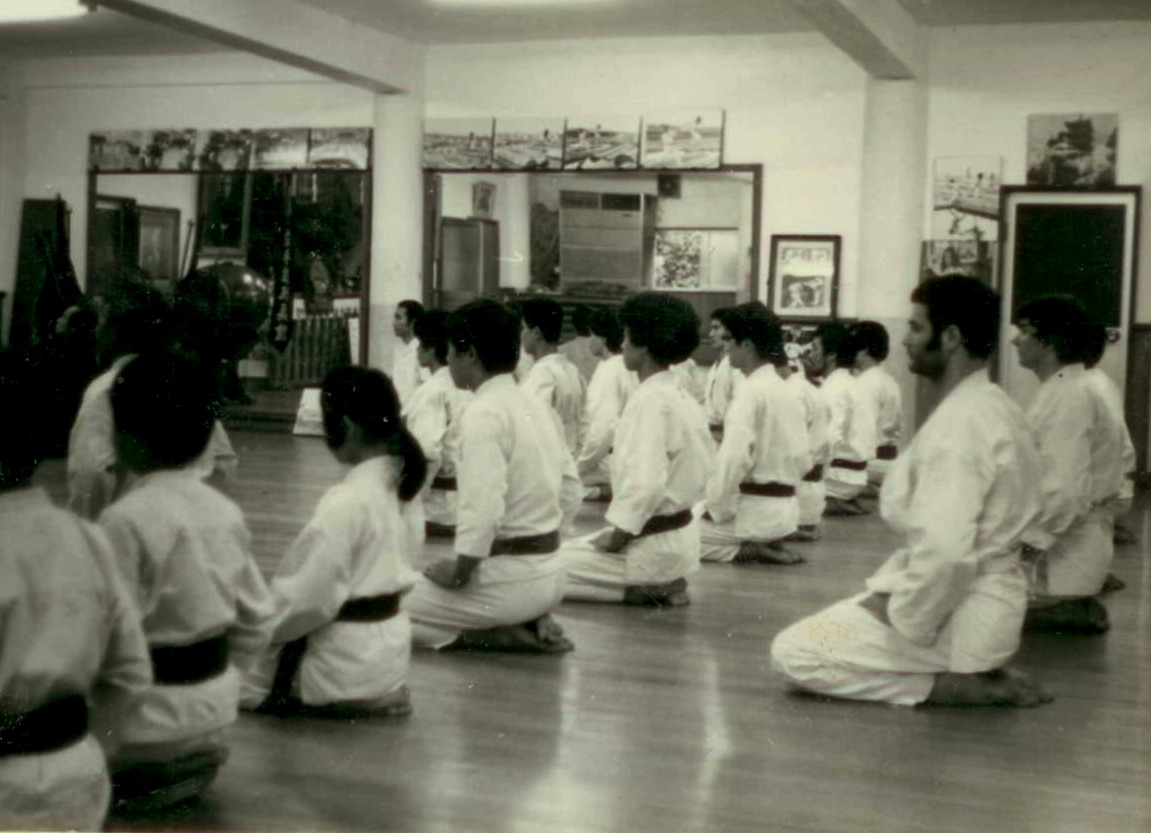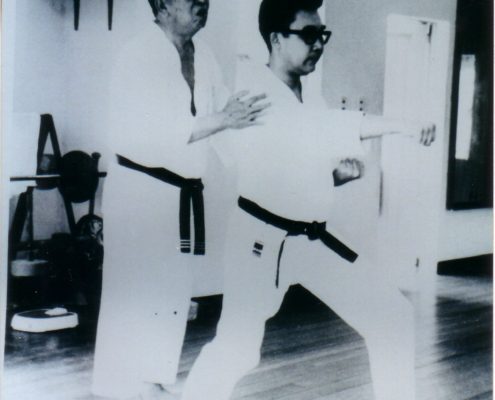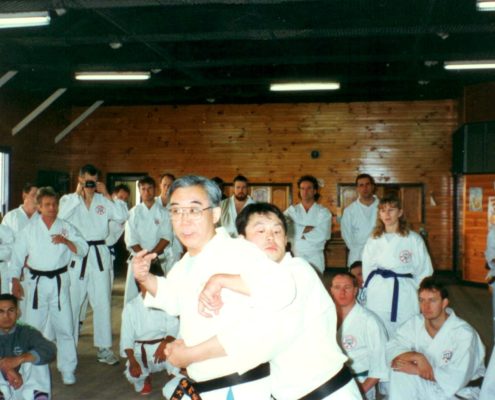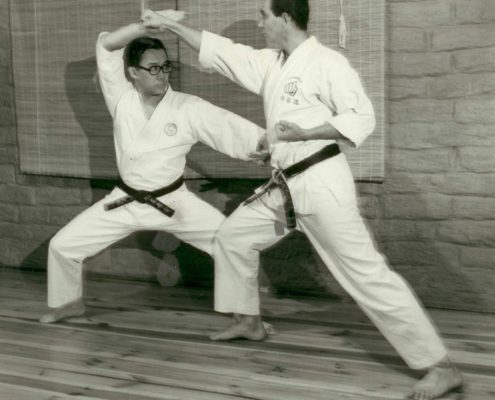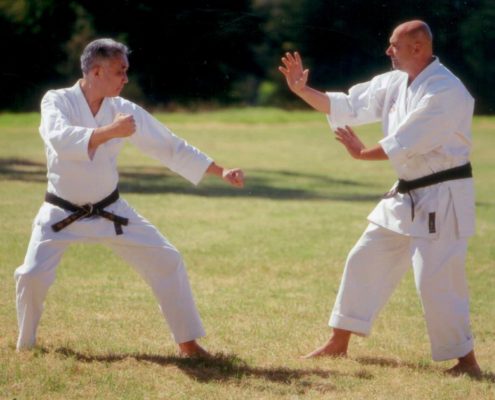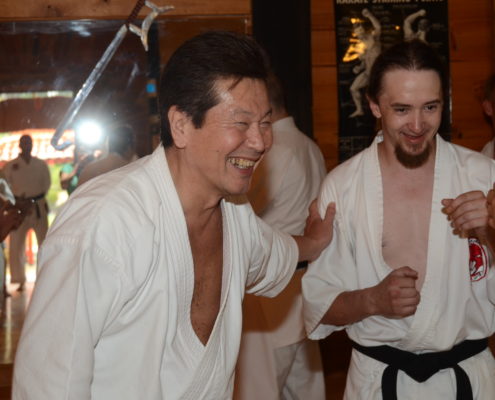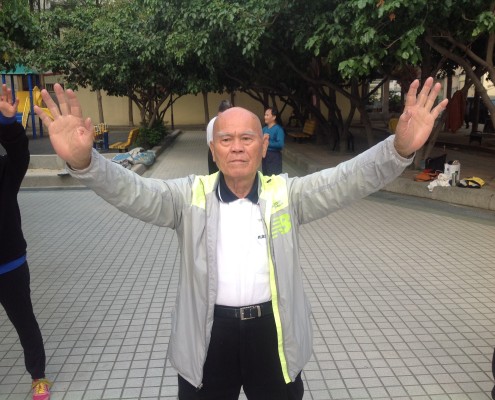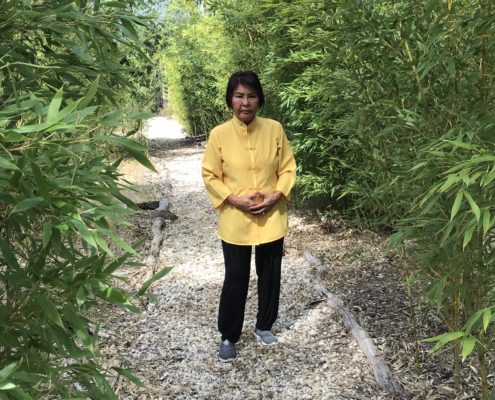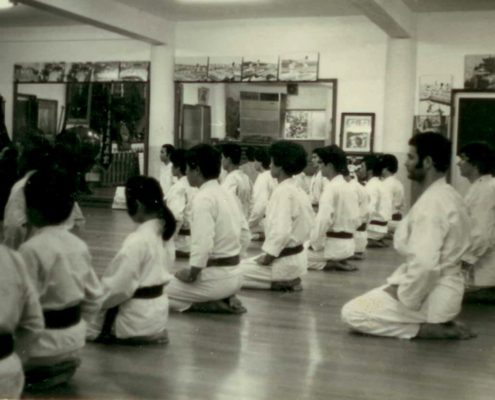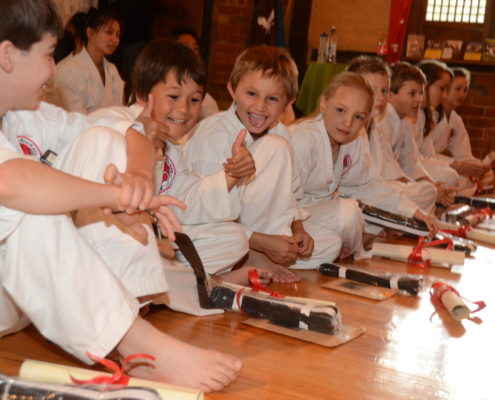Zen In Karate
“These mountains that you are carrying, you were only supposed to climb”.
– Najwa Zebian
Zen expressions permeate the practice of Karate-do. Words like Mushin, meaning no superfluous thought, Gambaru meaning working with commitment and perseverance and even the word dojo meaning a place of the way. In fact, initially a dojo was attached to temples and used for various practices. Later, the term became associated with martial arts or any serious endeavours.
Ohtsuka Sensei’s dojo was strongly influenced by Zen. There was a period in the mid 70’s to early 80’s, when he brought in a Zen monk to teach Za Zen. We studied Zuisokukan or breath-watching, which involves sitting up straight with no mental preoccupation, and without counting, simply becoming one with your breath. When inhaling you become inhalation, when exhaling you become exhalation.
We also studied Kin Hin or Zen-walking, where you bring your attention to rest on the present, focusing on the mundane nature of slowly walking clockwise around the park. The exercise emphasises coordinating the breath with each step and the feeling that you are not going anywhere and have nothing to achieve. You are just carried along with the earth and supported by the heavens.
As Martial Arts practitioners, the teachings of the Soto school of Zen created in Japan by Shikantazain Dogen were important to us. Dogen stresses the value of just sitting without any expectation, particularly that of gaining enlightenment. This idea was particularly useful, as when you begin practicing a discipline, there is usually an expectation or goal in mind. This expectation serves to create conflict or tensions, often referred to as “a way-seeking mind”.
Similarly, Buddhists acquire discipline through concentration and insight, leading to a profound stillness or “Emptiness”. Taoists refer to it as “Non-contrivance” and Confucians describe it as “The Infinite.”
Zen is inclusive and although its roots stem from Buddhism, it is not regarded as a religion in the traditional Western sense. Anyone can practice Zen. It has inspired many religious leaders to achieve a new understanding of their own religion. This is possible because Zen emphasizes training and experience much more than ideas of faith or theology.
The fundamental principles of Zen share many similarities with any great religion or philosophy. The Zen belief is that the highest fulfillment human beings can achieve is found in devoting ourselves to the benefit of all beings.
The study of Zen or becoming a Zen Buddhist is not a prerequisite to fully embrace “The Way” of Karate, however any student would be wise to research its underlying principles and individually explore its particular usefulness.
The ability to be completely present and immersed in the here and now, to not anticipate, is a high level of Karate. It is to be fully engaged but not with a rational or analytical mind. Ohtsuka Sensei often stated “You are always ready, even before someone attacks. Our past memories cannot explain to us with what is happening now, it’s too late.”
Ohtsuka Sensei believed that Karate and Zen share fundamental similarities.
Both stress the value in being able to fully experience and respond to each movement, where thinking, feeling and action become one.
Martial Arts stimulates the refinement of the consciousness. Zen may teach you to engage at a higher level, perhaps higher than you ever thought possible. This dedication may lead you to the recognition and acceptance that you may never be enlightened.
 Cart
Cart